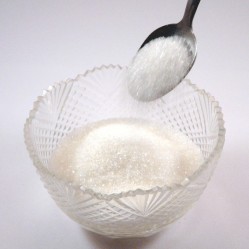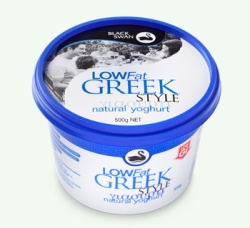I’m a fan of low-fat Greek yoghurt so of course I had to take note when British researchers claim that eating 80 g/day can prevent the development of type 2 diabetes. They had selected 4,255 men and women for the study from a larger cohort of 25,000 involved in the EPIC-Norfolk study. This included 753 people who developed type 2 diabetes over 11 years of follow-up and 3,502 randomly selected people for comparison.
But hang on there, isn’t EPIC the European Prospective Investigation into Cancer and Nutrition? One of the type of epidemiological studies that I am very suspect of in relation to diet correlations. Well, yes but maybe this time they could be right.
Actually, they had abandoned the typical food frequency questionnaire (FFQ) that is commonly used to record food consumption and replaced it with a prospective 7-day food consumption diary. I think the FFQ is a joke and should not be used for serious food studies. Of course the diary method is a big step forward. Still it was used only once to capture food consumption during a single week and 11 years later they tried to link this ancient food pattern with the development of type 2 diabetes. A little suspect!
So what did they find?
According to the results, eating a normal portion of yoghurt could reduce the risk of developing diabetes by 28%, compared to eating very little or no yoghurt at all. Expanding that to any low-fat fermented dairy product, such as low-fat cheese, still cut the risk by 24%.
In public-health terms this would involve consuming 4.5 standard-size portions (125 g) per week of low-fat fermented dairy products, mainly yoghurt and unripened cheese such as cottage cheese and fromage frais.
The researchers also looked at diets containing cake, pudding, biscuits, or chips and concluded that eating yoghurt instead of such snacks resulted in a 47% lower risk for diabetes. No other food substitution resulted in a significant reduction in diabetes risk.
To be plausible there has to be a reasonable mechanism that can explain the results. In this case it could be due to promotion of the synthesis of menaquinone (vitamin K2), which has been linked to reduced rates of type 2 diabetes, or the actions of probiotic bacteria, which have been found to improve lipid profiles and antioxidant status in patients with type 2 diabetes.
Read the nutrient information panel

Be careful with the sugar content (Photo: Judy van der Velder)
Before you jump on the low-fat-yoghurt bandwagon just a few reflections. The first relates to the cut-off level for fat used by the researchers. They considered products with less than 3.9% fat as low-fat. In Australia, full-fat yoghurt commonly contains 3.4% fat except for Greek and European style yoghurt. Also, if you read the ingredient list for low-fat yoghurt you will find that the fat is commonly replaced with sugar and the actual energy level might even be increased. So be a bit careful in the brand of yoghurt you go for.
But who am I to spoil the fun. The researchers were pleased to note that while other research looked at certain foods that raise health risks, such as consuming high amounts of added sugar, they were happy to report on foods, like yoghurt and low-fat fermented dairy products, that could be good for our health.
A good news story among all the doom and gloom.









Very insightful. Thanks for sharing.
Tricky work, nutrition science. Not always easy to believe their findings. Your kind support is much appreciated.